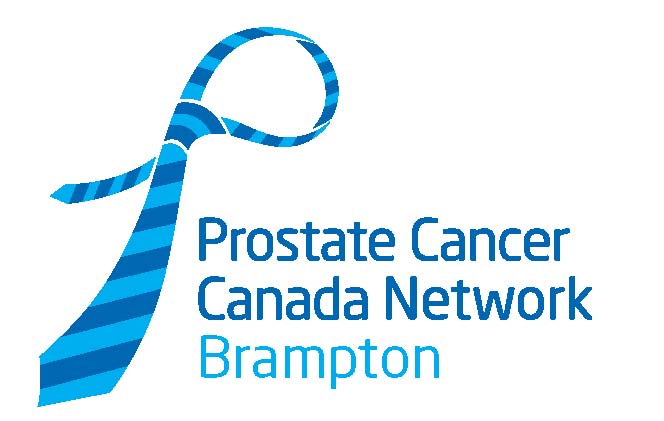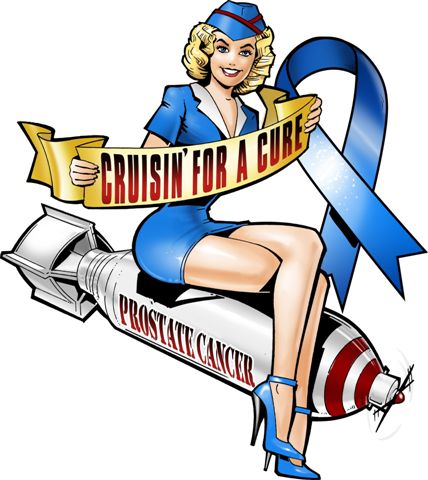
February General
Meeting
|
|
'Cancer & Emotion'
Alex J. Isbister, M.S.W.
Personal & Organizational Effectiveness,
Marriage Counseling, Psychotherapy,
Executive & Team Coaching,
“Helping Good People Get Better”.
344 Hume St. Phone: (705) 443-1819
Collingwood, ON, Fax: (705) 445-0962
Toll-Free: 1-866-443-1819 E-mail
sisbis@netcom.ca
Brampton Memorial Hospital
Prostate Cancer Support Group
February 11, 2003.
CANCER & EMOTION
Following are the questions and comments that were put to me at the group’s February 11 meeting, and my comments in reply.
How do we cope with the well-meaning friends who want
an update on his health - every day for the next ten years?
This can be frustrating, n’est-ce pas? Hmm. There might be a
variety of reasons for such behaviour. For one, let us suppose
that a cancer diagnosis changes a man’s status, makes him seem
more vulnerable for a while, makes him seem perhaps “helpable”,
to coin a new term, and perhaps therefore a little more
attractive to such a solicitous person as you describe. Such a
person might have a continuing interest in knowing that there
are indeed sequel of the original diagnosis, enhancing that
person’s own status potential, as it were. Or let us suppose
that the person is poaching a little - that (s)he admires you
and your family and wants to be close to you, treating that
knowledge as privileged, a symbol of intimate trust. Think
about it in this way - what might be motivating the behavior -
and you may get clues about how to respond kindly - and
successfully!
Why do men have such a hard time expressing their
feelings?
Partly, I think this is genetic. Our male forebears did best
who were high status and independent hunters for food. Our
female forebears who did best were the ones who built solidarity
within the community group. Darwinian selection would suggest
that these are the ancestors who survived best and who
procreated most. (This insight is developed nicely in Deborah
Tannen’s book, You Just Don’t Understand.) Today, of course, we
live in a society and in an economy that insulates us from those
needs, and presents others. Women need to have status and
independence, even if it comes hard to (some of) them. And men
need communication skills - and to use them, even if that seems
tough to do at times.
Dealing with cancer was easy. Dealing with stress is
ongoing.
A nice distinction is drawn here. An event is not a crisis
unless we perceive it to be so. This man knows that the
challenge is not the physical reality, but his reaction to it.
If he can learn about relaxation ( which we did not go into at
the meeting), he can probably make a difference to the stress in
his life.
Can one spend too much time thinking about one’s
problem of prostate cancer?
Balance is a precious goal in life. Yes, we can spend too much
time thinking about a particular thing. Success is more easily
measured here if one has taken the time to set goals in a
variety of sectors, if you like, of his or her life. If I spend
all my time thinking about one aspect of my health , even a very
important and threatening one, to the exclusion of my marriage
and family, friends, community, work and money, spirituality,
hobbies and the like, I think we might agree that that is “too
much”. Of course, “to every thing there is a season”, and there
will be times when it is right to focus on some single aspect of
one’s life for a while.
With the Pennebaker exercise, do you name the names
and/or instances?
Yes, sure. The key, however, is to name the feelings. To do
that, it is probably easier if you also write something about
what the feelings are about.
But yes, specificity is key in this exercise. If that means
writing things down that you do not want to see the light of
day., then destroy what you’ve written after writing it. Don’t
just “tuck it away”.
One of the worst experiences of my life was to lose
temporary control of my bladder.
One can only hear, with attention and respect, that this was
true for you. Thank you for telling me.
Why do men say, “No big deal”? Women don’t.
I think this is of a piece with the question above - it relates
to the importance to men of independence and status which both
are diminished if threats, however real, are acknowledged as a
“big deal”. “But”, I hear you object, “doesn’t he realize that
his very life might be at stake here?” Well, yes, he may.
Independence and status can be very important indeed! As I said
on Tuesday night, many men are reluctant to express feelings
other than anger and sex (feelings, by the way, which reflect
independence and status).
Writing deepest feelings really helps.
I love testimonials!
Will I be able to help others alleviate their
depression?
Listening generously is one of the gifts we can offer friends
and family who are burdened with heavy feeling, including
depression. In work done decades ago, relationship skills
identified as “helpful” included empathy, genuineness, clarity
of understanding, concreteness with respect to feelings,
specificity with respect to problem solving, self-revelation
(careful - not too much!) - in short, all the things that you
intuitively sense to be helpful, are! Note that advice is
not on the list.
Will expressing my feelings cure my disease?
The short answer is “No”. A longer answer would include
that “recovery” (as opposed to “treatment”, which is the medical
and surgical response to the disease) is a multi-factorial,
systemic, holistic process that draws on all aspects of our
being - physical (physiological, biochemical), psychological,
social and spiritual. Not expressing feelings takes work
(I know, expressing them can take work too, but usually of
shorter duration - a job, then it’s done, at least for the
moment). The work that inhibition takes causes one more
chronic stress, one more load on the immune system that you want
to be free to address the disease state. And it turns out
that this is not a small matter. Pennebaker’s work
demonstrates statistically significant improvements in measures
of depression, marital well-being - and immune system function.
Do you feel that anti-depressants such as Prozac can
be OK to take regularly?
For many depressions, the new generation of anti-depressants are
the treatment of choice. When they work, they work, and
their use may be indicated over a long period of time. Be
prepared to work closely with your prescribing physician.
Getting the medication and the dosage right can be a challenge,
and it is powerful medication, so there may be side effects.
And be aware that some depressions respond better to
psychotherapy, and some to a combination. There are herbal
and homeopathic remedies available too, for less serious
depressions. It makes sense to be informed about the
options. But the short answer is, “Yes”.
Feelings are important. Emotions are a natural
thing. Anger is surmountable. Change is living and a
part of life.
Ah - more testimonials.
How can you express your feelings without getting
emotional?
This is a toughie! The essence of emotional communication
is that it communicates emotion. There is something of the three
dollar bill about a dry report of anger or fear that is coloured
more by calm rationality than by the flavor of genuine emotion.
If your question is about trying not to go overboard, be careful
what you start. Fear, anger, resentment, anxiety,
embarrassment, shame, are strong emotions. It may be tough
to get into them without getting ....into them!
The basic exercise sounds like a good idea. I’m
going to try it.
Good show!
Our most stressful thing in life should be that we
are going to die one day - yet we are not usually distressed
about this. Why would the fact that we are told we have cancer
cause so many problems?
Great question. It seems to me that it is not death itself that
we find so irreconcilable, but the prospect or report of
untimely or otherwise tragic death. It has been said that we
live in a society that denies not only death, but loss itself.
But a diagnosis of serious illness is a horse of a different
colour. It raises the specter of loss - not just of life, but
of health, of pleasure, of independence, of freedom of choice.
Until we develop a constellation of responses to these threats,
responses that are intellectual, emotional, behavioral, and
which encompass our physical, psychological, social and
spiritual selves, we will be living in a condition of some
anxiety and stress. it would be a highly evolved person indeed
who met such a moment only with excitement and relish about what
is to come.
I am referring to what I told you at the break about
all the trauma in our lives. Did you think what I spoke about
is stress and would this be a good exercise for me?
Yes and yes. And - in managing stress, a number of issues come
to mind – exercise, nutrition, rest, balance in life –
lifestyle. But the most important skill in managing stress, in
my opinion, is to learn how to relax, in the technical sense of
lowering heart rate, blood pressure and slowing brain wave
activity. Eli Bay is an exceptional relaxation skills trainer.
He runs a training institute in Toronto (The Relaxation
Response, 416-932-2784) where he offers training programs and
sells tapes and CDs of his work. I highly recommend Eli’s
programs.
How do you decide how and when to bring in other
family members into the crisis?
Another good question. There should be a balance among
different values in answering this question. Is the patient
served in some way by keeping the information close? Are the
family members? How will they feel when they find out that they
have not been privy to such important information. I don’t
think there is one answer to fit all families. But elements of
the right answer will include a sense of respect for all the
players - the patient himself and the individual family members
around him.
The Dr. says how lucky I am to be alive. I work, pay
bills, no sex, constant incontinence. Great life.
We don’t always operate at our best. We all have moments that
we wish we could replay. I’m sure Beethoven wrote a few bum
notes. And I wish your doctor had been a little more in tune
with your reality when he tried to give you encouragement as you
proceed with your treatment. Isn’t this a great example of the
support and understanding that can be offered by UsToo?
As I said at the meeting, there were two questions I did not understand, so I did not include them in this report to you. If yours was one, please feel free to call. There was one that had to do with a sexual problem resulting from the surgery, and marital tension as a result. If you would like to discuss this, please call.
Following are the “stickies” that were put up on the chart about Feelings about Cancer, its Diagnosis and Treatment.
A second opinion? scared fear uncertainty re future
denial anger acceptance why me?
fear anxiety relief inconvenient disbelief damned
nuisance incontinence?
hopelessness fear self-pity loneliness
anxious sad scary at first anxiety
worry anxiety depression depression
anger - why? lets get on with it loss of best friend in life
fear anger fear depression
hope happiness depression confusion
challenging I am not afraid Denial Acceptance
Anger Depression acceptance anxiety
nervous fear depression worry
anxiety anger depression anxious
upset fear of loss fear of the unknown
concern for loved ones prayer relief denial
sadness hopelessness anxiety acceptance
frustrated why me? relief relief
acceptance of the diagnosis - learning to deal with it
devastated when first told fear
anger at non-responsive medical system
will I survive surgery? How long will I live? Has the cancer
spread?
can I still lead a normal life after the diagnosis of cancer?
ticked off at not being able to do things
how to make decisions about this?
fear - will I become incontinent?
anxious about the treatment
scared of the word “cancer”
I wanted more time with the Dr. re post-op problems, and more
help from Us Too type groups
AUDIO & SLIDES DOWNLOADS
AUDIO:
NO AUDIO
AVAILABLE
SLIDES:
NO SLIDES AVAILABLE
PROSTATE CANCER AWARENESS!
Prostate Cancer Canada Network - Brampton
·
Tel: 905- 453-3038 · Fax: 905-840-9474 · Email: info@pccnbrampton.com


